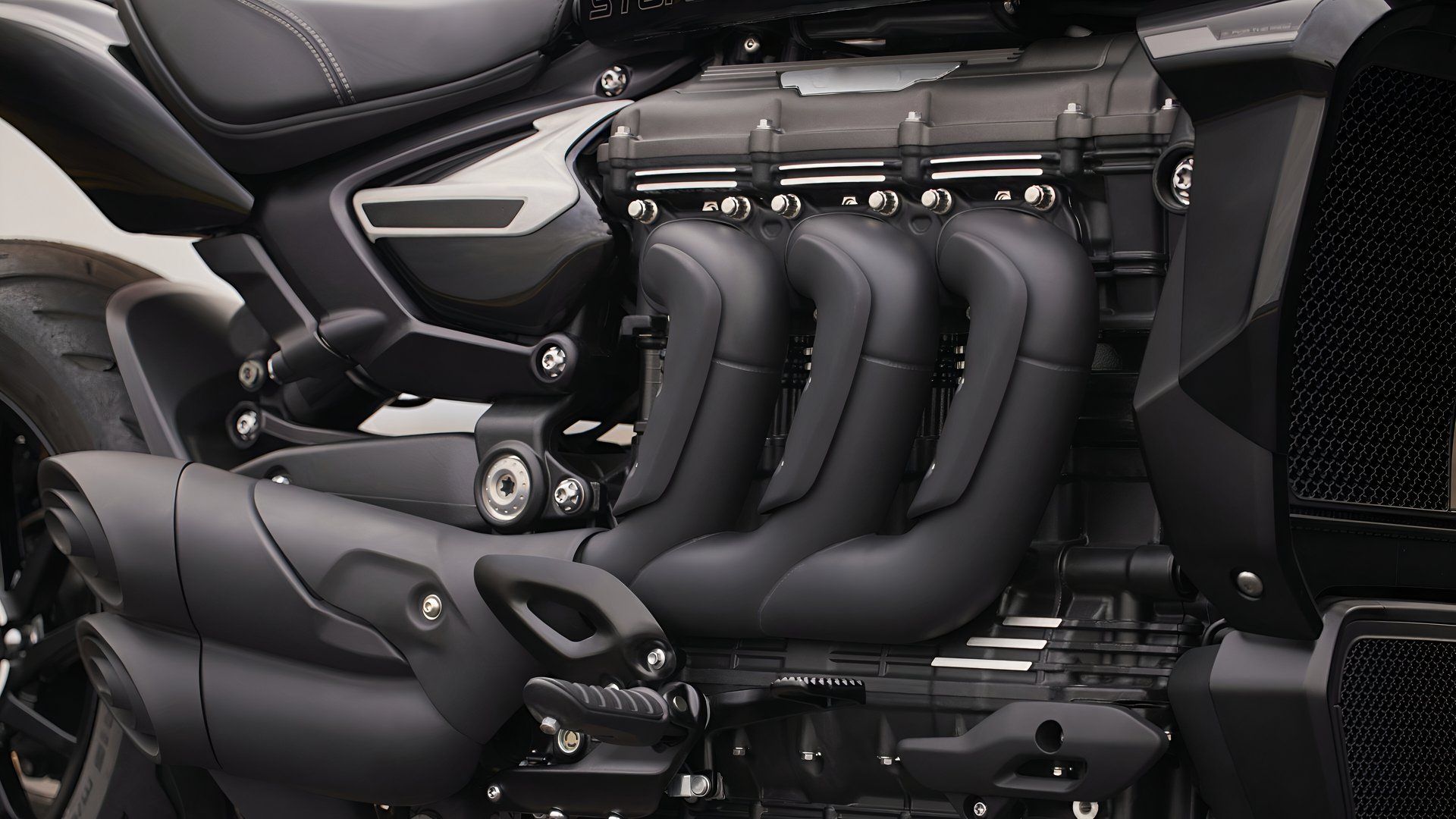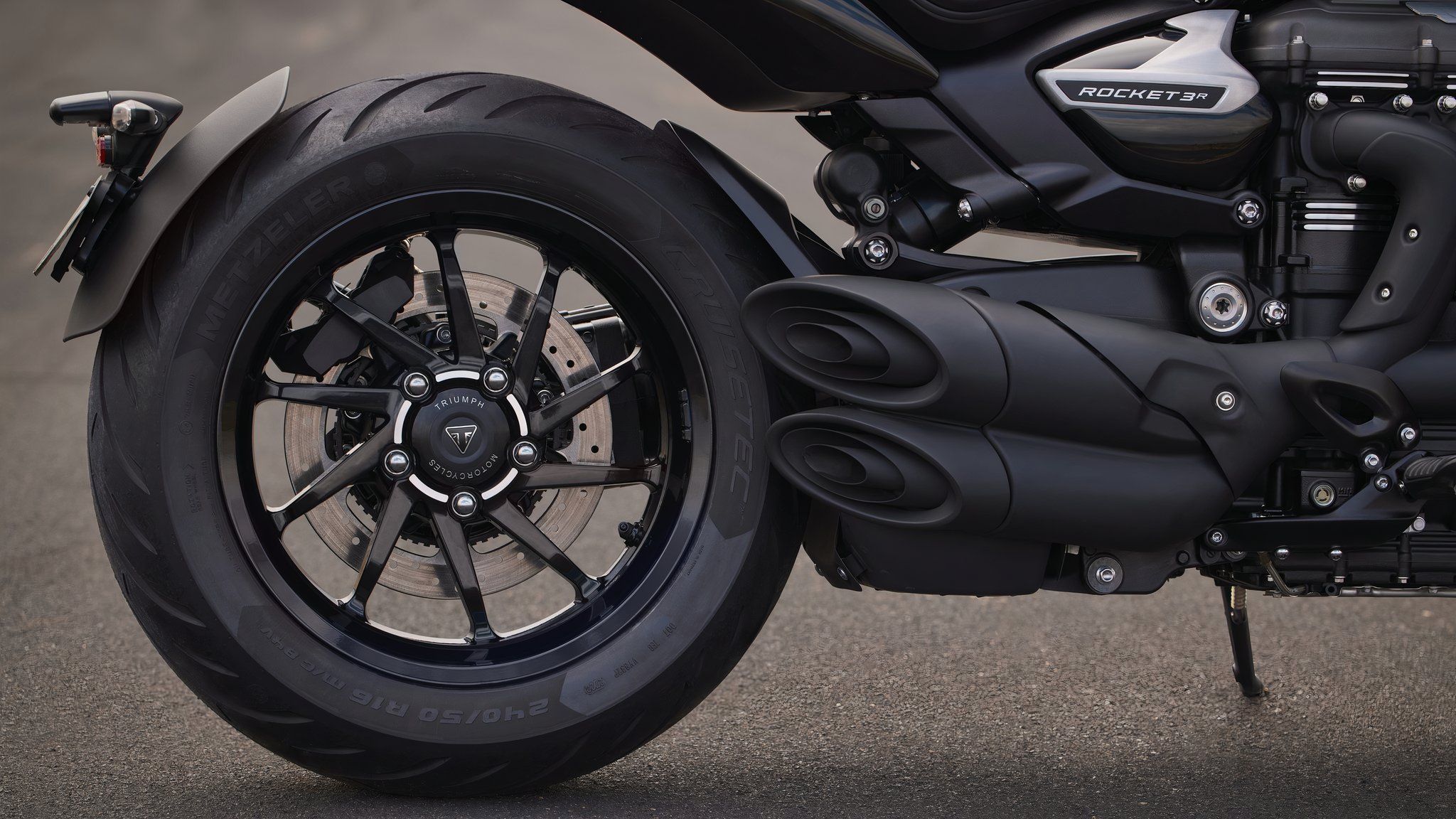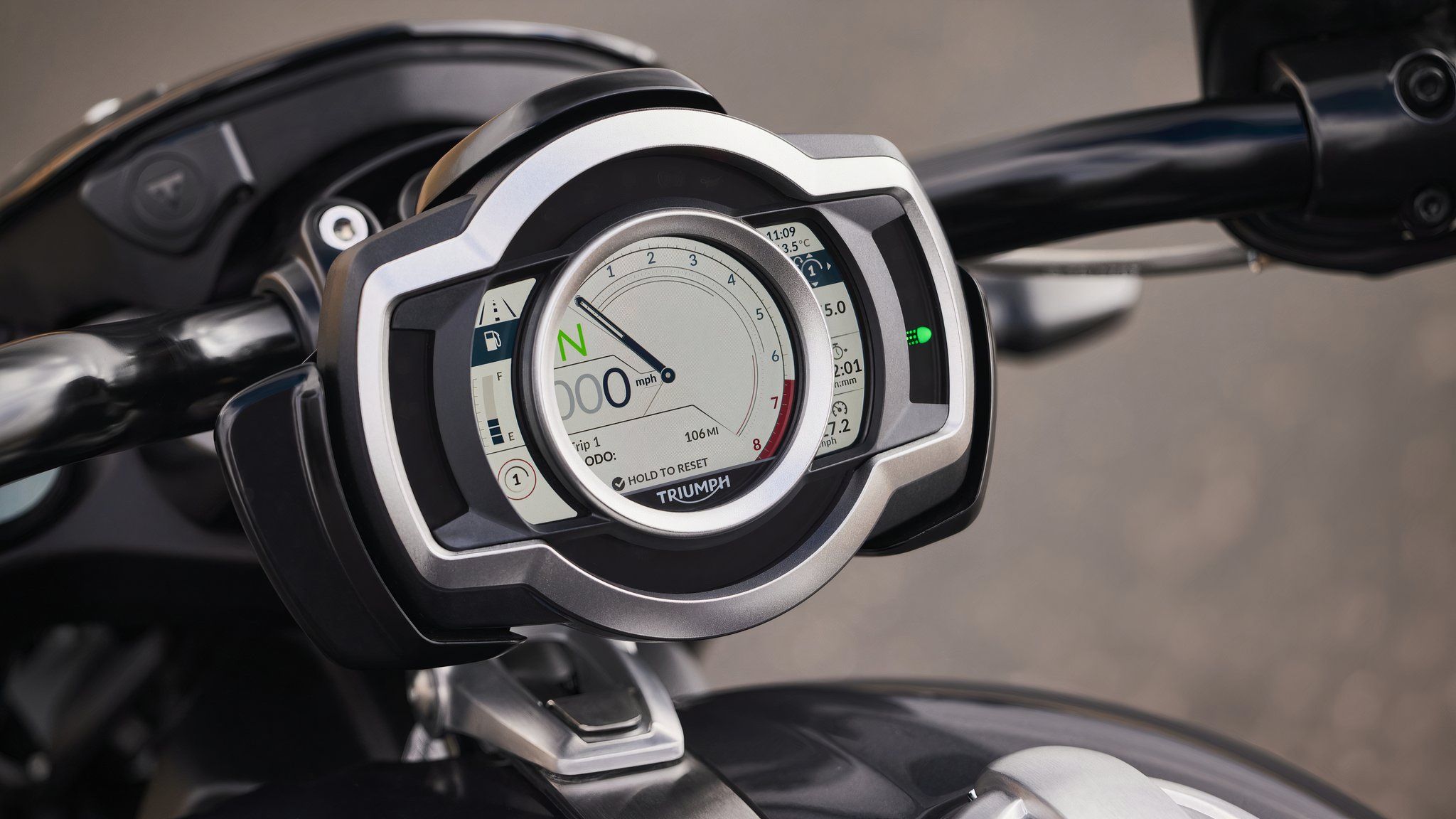Initially designed for a relaxed riding experience, cruisers offer the joy of feeling the breeze and witnessing the scenery pass by. Like other motorcycle categories, cruisers have diversified, presenting various styles ranging from basic starter models to traditional variants, as well as sportier iterations that embrace aggressive cornering.
Nevertheless, if you’re seeking a versatile cruiser that manages everything effortlessly, your search will be challenging. The Harley-Davidson Sportster S is one contender, although many purists debate its classification as a true cruiser based on its frame and engine. Options like the Indian Super Chief and Harley-Davidson Fat Boy exist, yet they prefer a more leisurely pace. To discover a cruiser capable of it all without breaking a sweat, you might need to venture across the Atlantic.
This article’s information has been carefully compiled from reputable sources, including the official websites of the manufacturers.
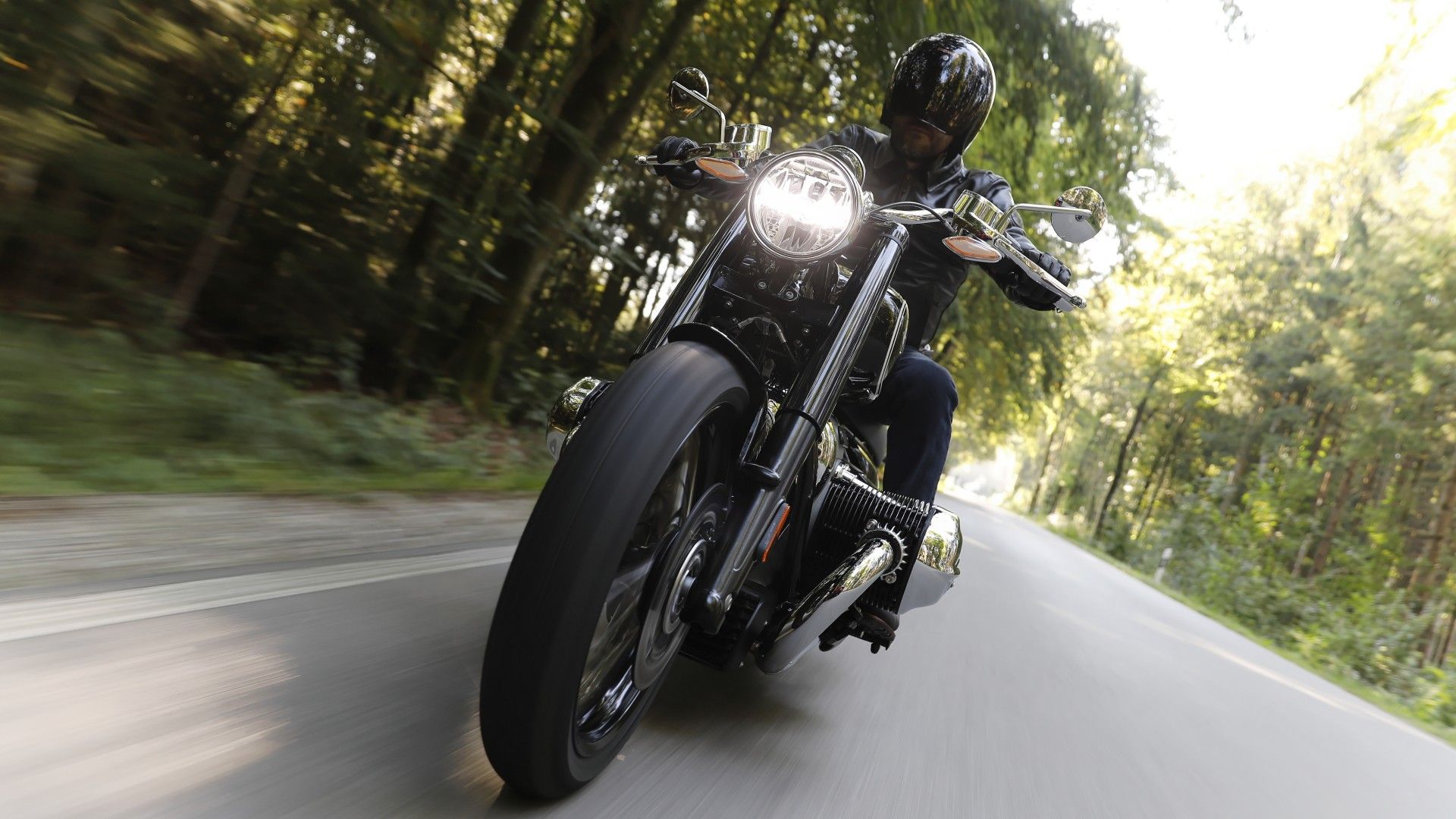
Related
10 Expensive Cruiser Bikes That Have Depreciated Into Affordable Bargains
With the motorcycle industry in a slump, some of the most expensive cruisers are now genuinely affordable on the used market
The Triumph Rocket 3 Storm GT Is The Cruiser That Does It All Without Breaking A Sweat
Price: $25,795
Tracing its origins back to the early 2000s when the demand for powerful motorcycles was high, the Rocket 3 comes equipped with a massive engine, setting it apart from standard cruisers. Triumph pioneered a unique longitudinal inline three-cylinder engine, surpassing many small cars in displacement. Now in its second generation, Triumph has not only increased the engine’s size but also prioritized making the Rocket 3 lighter and sportier, embodying the cruiser that excels across all scenarios without undue effort.
Triumph Rocket 3 Storm GT Highlights
- Largest production motorcycle engine in history
- Full electronics suite thanks to a six-axis IMU
- Top-notch chassis components complemented by its powerful engine
Triumph Rocket 3 GT Engine: ‘Monstrous’ Is Right
More Power And Torque Than Anything Else In The Segment
Triumph aimed to set the record for the largest production motorcycle engine and succeeded with the original Rocket 3’s 2,294 cc engine. This achievement outclassed Kawasaki’s recently launched Vulcan VN2000, which holds the record for the largest production twin till recently eclipsed by the Harley-Davidson CVO Road Glide RR. The second generation of Rocket 3 increased displacement to an impressive 2,458 cc.
Powering up to an astonishing 180 horses and delivering 166 pound-feet of torque, the torque alone rivals that of many small cars, peaking at a manageable 4,000 RPM. This engine exemplifies the notion that ‘there’s no substitute for displacement’; it lacks variable valve timing or any electronic upgrades.
This remarkable power is transmitted through a six-speed gearbox coupled with a hydraulically assisted clutch, while a shaft drive connects the engine’s output to the rear wheel. The by-wire throttle includes ride modes, and a six-axis IMU enables lean-sensitive traction control as part of the electronics package, featuring four ride modes and cruise control.
Triumph Rocket 3 GT Engine Specifications
Engine Configuration | Inline three cylinder, liquid cooled, DOHC, 4 valves per cylinder |
Displacement | 2,458 cc |
Bore x Stroke | 110.2 x 85.9 mm |
Compression Ratio | 10.8:1 |
Power | 179.5 HP @ 7,000 RPM |
Torque | 166 LB-FT @ 4,000 RPM |
Fuel System | Electronic Fuel Injection |
Transmission | 6 speed manual transmission, hydraulic clutch, torque assist |
Final Drive | Shaft drive |
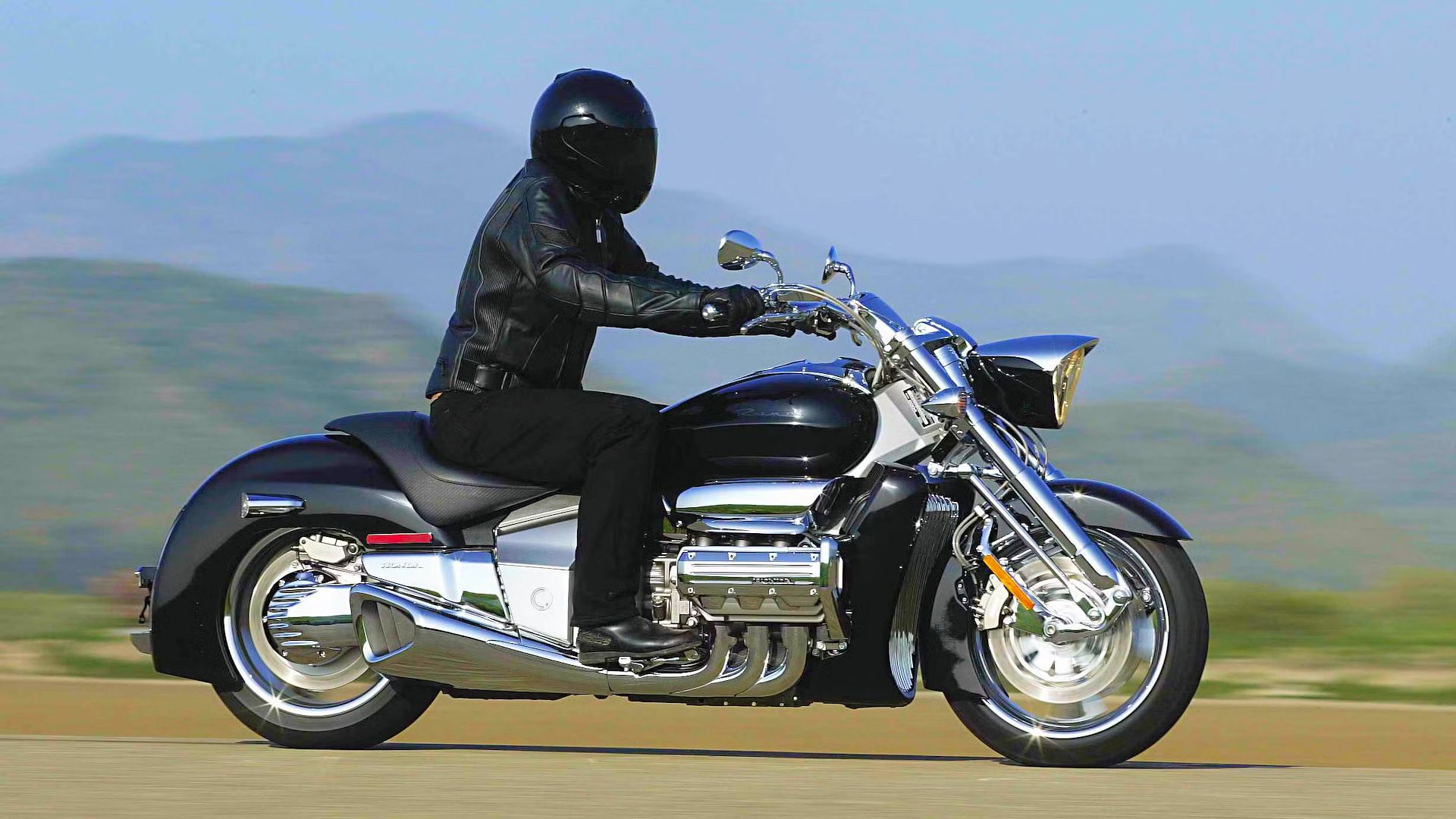
Related
10 Powerful Cruiser Bikes From The 2000s That Are Worth Buying Today
These powerful cruisers from the 2000s cost as low as
Triumph Rocket 3 GT: All-Aluminum Chassis Keeps Weight Down
A Single-Sided Swingarm Is A Nice Touch
The Rocket 3 features a twin-spar aluminum frame designed to accommodate the considerable engine. Utilizing aluminum allows for weight reduction, complemented by cast aluminum wheels. Additionally, the frame incorporates a single-sided swingarm, elegantly showcasing the driveshaft while revealing the attractive rear wheel design.
Showa provides the steering and rear suspension, both fully adjustable, with remote hydraulic preload adjustment for the rear shock. Triumph has not cut corners on braking, employing radially mounted Brembo Stylema calipers at the front, with a Brembo M4.32 at the rear—calipers typically found on sportbikes, ensuring they are well-equipped to control this nearly 700-pound cruiser. A six-axis IMU ensures lean-sensitive ABS and hill-hold control.
Triumph Rocket 3 GT Chassis Specs And Dimensions
Chassis | Full aluminum |
Front Suspension | 47 mm inverted Showa cartridge fork, fully adjustable; 4.7 inch travel |
Rear Suspension | Showa piggyback single shock, fully adjustable with remote hydraulic preload adjustment; 4.2-inch travel |
Front Tire And Wheel | 150/80 R17 |
Rear Tire And Wheel | 240/50 R16 |
Front Brakes | Dual 320mm discs with radial-mount four-piston fixed Brembo M4.32 Stylema monobloc calipers |
Rear Brakes | 300 mm disc with four-piston fixed Brembo M4.32 Stylema monobloc caliper |
Length/Width/Height | 93.1/36/46.6 inches |
Fuel Tank Capacity | 4.76 Gallons |
Wheelbase | 66 inches |
Rake | 27.9 degrees |
Trail | 5.3 inches |
Seat Height | 30.4 inches |
Ground Clearance | NA inches |
Curb Weight | 699 LBs (wet) |
Triumph Rocket 3 GT Features
Many Accessories, Needs More Standard Features
The Rocket 3 aims to exemplify muscle cruisers, which is clear from its immense engine and superior suspension and braking system. However, it lacks some luxurious features typically associated with superbikes. Although it offers a TFT display, conveniences such as Bluetooth connectivity for phone, music, and navigation are optional extras. Other options include a two-way quickshifter and a tire pressure monitoring system—features that ideally should come standard.
For added versatility, luggage options include 6.6-gallon sports panniers, a 2.4-gallon quick-release tail pack, a 3.2-gallon tank bag, and a passenger backrest rack. Additionally, if you’ve purchased a Rocket 3 R and wish for a GT model, you can easily swap footrests at the dealership, adding a nice touch of customization.
Triumph Rocket 3 GT Features
- TFT display
- Standard heated grips on the GT
- Phone connectivity is optional
- Interchangeable ergonomics between R and GT
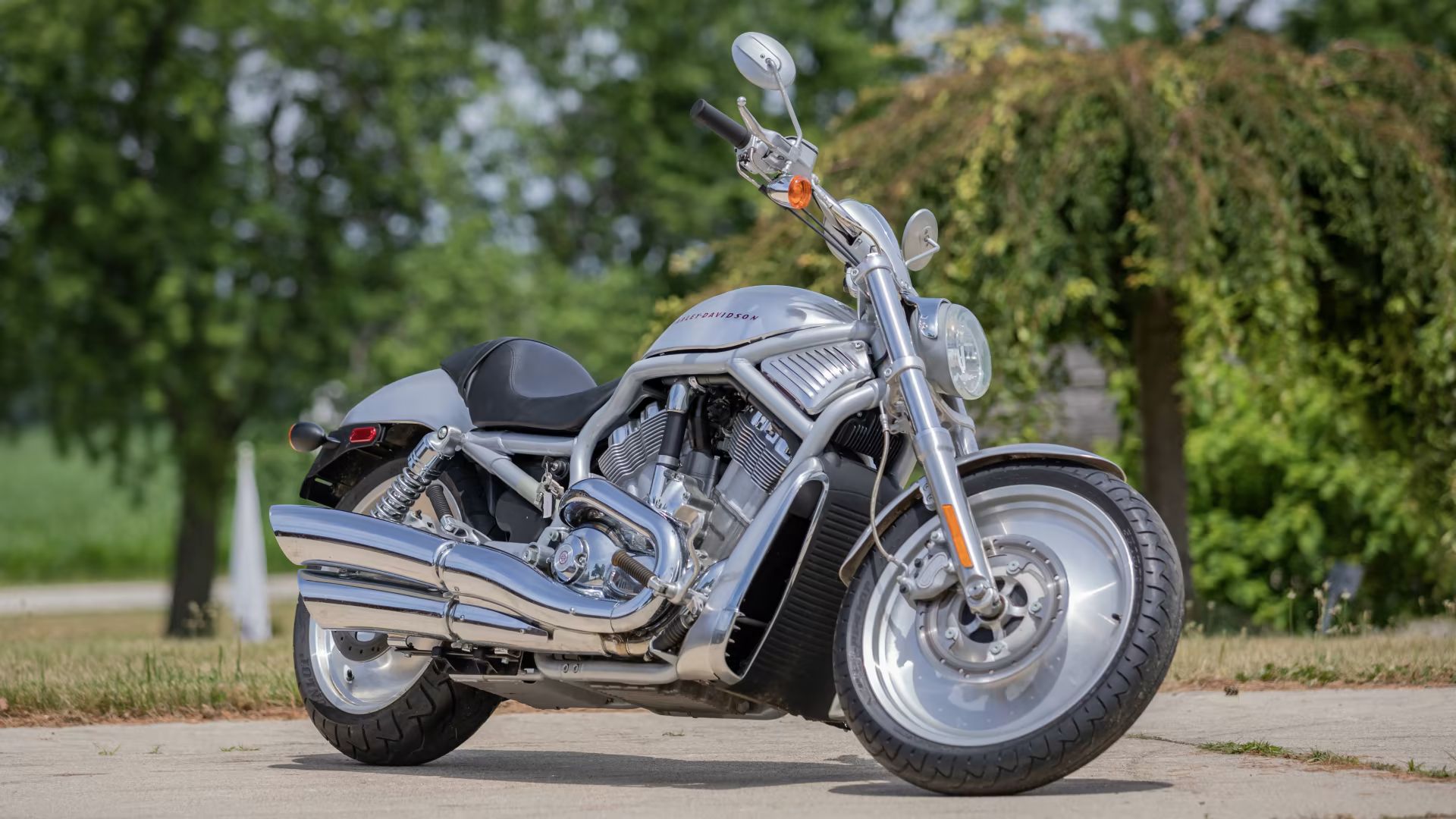
Related
10 Fast Used Cruiser Bikes You Can Buy Under For $10,000
You can get some of the fastest muscle cruisers on the used market for less than $10,000
Triumph Rocket 3 GT Competition
It’s Italy Vs Britain
The Rocket 3 has been crafted and engineered to occupy a unique space in its class, largely succeeding in that effort. There are sporty cruisers like the Harley-Davidson Sportster S, but they lack the robust power offered by the Rocket 3. If torque is your priority, options like the Harley-Davidson Fat Boy and Indian Super Chief are available, yet they fall short in terms of their power metrics.
There’s only one competitor that poses a true challenge to the Rocket 3 GT: the Ducati XDiavel V4. This bike features a comparably potent engine, along with unique characteristics such as a counterrotating crankshaft and a lighter overall weight—allowing the XDiavel to excel in corners while being slightly behind the Rocket 3 on straightaways. Its superior electronics package further enhances it as a lighter and sportier alternative to the Rocket 3.
Triumph Rocket 3 Vs Rivals
Model | Triumph Rocket 3 GT | Ducati XDiavel V4 |
Price | $25,795 | $28,995 |
Engine | Inline three cylinder | 90 degree V4 |
Displacement | 2,458 cc | 1,158 cc |
Power | 179.5 HP @ 7,000 RPM | 168 HP @ 10,750 RPM |
Torque | 166 LB-FT @ 4,000 RPM | 93 LB-FT @ 7,500 RPM |
Curb Weight (Wet) | 699 LBs | 505 pounds |


